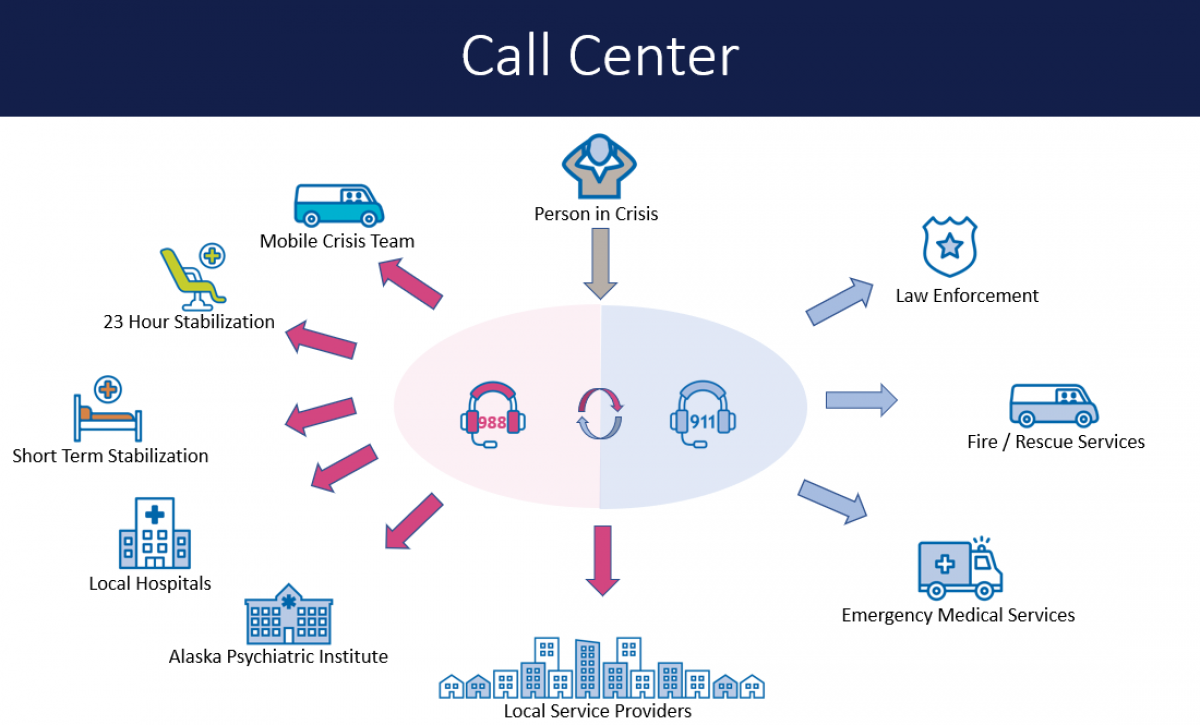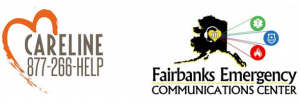Call Center

What is a Crisis Now Call Center?
The Call Center is the coordination hub for the Crisis Now model. The Call Center is designed to be the primary way for a person in crisis to immediately be connected with services. The Call Center must meet National Suicide Prevention Lifeline (NSPL) operational guidelines and offer a high level of coordination of crisis care. The Call Center will be equipped to take all calls, deliver telephonic intervention services, triage calls and coordinate connections to additional support if needed.
How to reach the Call Center
The Call Center will field crisis calls on 988, 911, and Careline's (877) 266-HELP. As the Crisis Now Call Center is formalized, other communication methods will likely be included as well.
Call Center Partners
While there are several local and statewide partners for the Call Center, the primary partnership needed for the Call Center is between the Careline and the Fairbanks Emergency Communications Center.
Crisis Now Call Center Characteristics
- Operate 24 hours a day, everyday
- Meet all NSPL guidelines
- Be able to coordinate services with local and statewide resources
- Access to clinical support/supervision
- Ability to dispatch the Mobile Crisis Team
Call Center Technology
Crisis Now Call Centers are modeled after Air Traffic Control Centers. The Call Center is expected to always know the status and location of all callers and crisis resources in real-time.
For example: Q. Jones calls 988 and is assessed to need the Mobile Crisis Team (MCT). The Call Center would dispatch the MCT with all the relevant data available and be able to track the MCT to Q. Jones' location. If the MCT determined that Q. Jones needed an additional local service, the Call Center would be able to see availability of that resource, book an appointment if necessary, and then track the MCT and Q. Jones to the resource.
To accomplish this level of coordination the Call Center will need a comprehensive suite of technology systems including:
- Advanced Caller ID
- Ability to pull appropriate electronic medical records
- GPS monitoring of the MCT
- Real-time bed registry technology
- Centralized appointment capabilities for participating services

